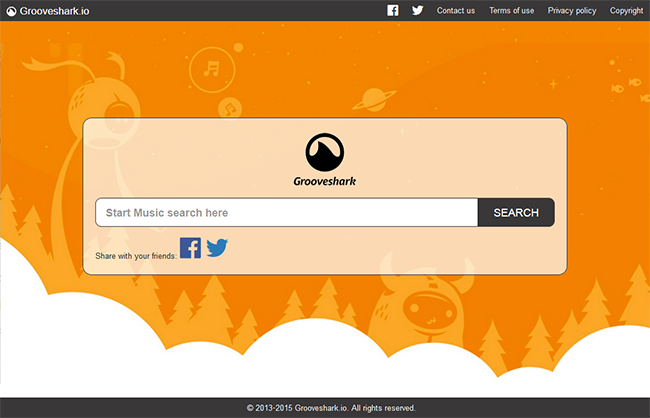KickassTorrents “DIY” Karaoke ‘Gang’ Busted By UK Police
mercredi 16 décembre 2015 à 14:45 While karaoke might not be the pinnacle of original musical excellence, yesterday the UK’s leading police anti-piracy unit took action which suggests it takes karaoke every bit as seriously as other intellectual property.
While karaoke might not be the pinnacle of original musical excellence, yesterday the UK’s leading police anti-piracy unit took action which suggests it takes karaoke every bit as seriously as other intellectual property.
And, somewhat interestingly, there could be more to this sing-a-long case than first meets the eye. First, let’s see what the police had to say.
Acting on a complaint initially filed by members of the BPI, City of London Police’s Intellectual Property Crime Unit (PIPCU) initiated an investigation during the summer against individuals allegedly uploading karaoke tracks to the Internet without permission.
That resulted in raids yesterday on three men aged 60, 53, and 50 at their homes in Devon and Bury in the UK.
“The Police Intellectual Property Crime Unit (PIPCU) has dismantled a gang suspected of uploading and distributing tens of thousands of karaoke tracks online, including artists such as Beyonce, Lady Gaga, Kylie Minogue and Kanye West,” PIPCU said in a statement.
While police use the term ‘gang’ here it’s not one frequently associated with karaoke fans and the further one digs into the activities of the men, the less it seems to fit.
Together the trio formed Karaoke RG (KRG), a release group specializing in karaoke tracks. Police say their activities on KickassTorrents piqued the interest of copyright holders – their still-active account has around 2150 uploads during the past two years.
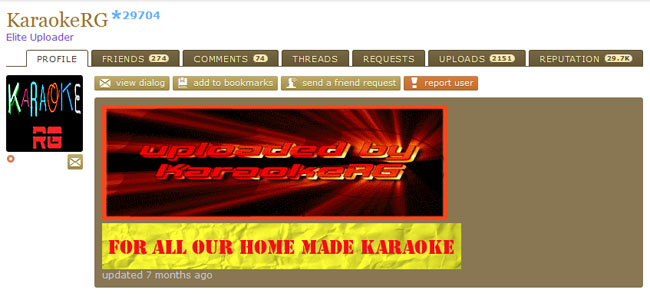
However, Kickass wasn’t KRG’s home base. In recent times the group has operated from two domains, the first being Karaokerg.info. This Weebly-created site is probably the first indication that KRG aren’t necessarily in the kind of ‘gang’ the police usually have the displeasure of dealing with.
The second and catchily-titled freehomemadekaraoke.wordpress.com probably removes all doubt.

KaraokeRG publishes a master list of the tracks they offer (stored on Dropbox and Box) and there are indeed songs from major artists present. However, their description of what they are offering is certainly food for thought.
“The following is a list of all KaraokeRG homemade CD+G karaoke songs. They were created primarily because they are not available from any professional karaoke manufacturers. However, in some cases, some songs were made available by professional karaoke companies AFTER they were homemade,” KRG write.
That KRG were into the ‘DIY’ side of karaoke is underlined elsewhere too.
“Although our homemade karaoke tracks are free to download, they are time consuming and costly to produce. I.E. Paying for backing tracks (some backing tracks can cost up to £12).”
So, some important points. KRG claim they are servicing a gap in the market by hand-creating their own karaoke titles that aren’t commercially available. In this respect there are parallels with the fan-subbing communities surrounding anime, for example.
However, it’s likely that the backing tracks they’re using are subject to copyright restrictions so even giving those away are likely to cause issues, even with ‘homemade’ subtitling.
The Karaoke Anti-Piracy Agency UK (KAPA UK) which counts the top five karaoke producers in the country among its members (Sunfly, Zoom, Mr Entertainer, SBI, Abraxa), is tasked with cracking down on the unlicensed use of backing tracks in karaoke venues around the country. KAPA UK works closely with the BPI.

Also causing KRG problems is their claim that their activities are protected under copyright law.
“These tracks are NOT FOR SALE. They are provided as a service to singers everywhere under Section 107 of the Copyright Act of 1976 (The ‘Fair Use’ section). The tracks are made available for private use only and not intended for commercial use. There will be no ‘vocal suppression’ tracks ever included in this list,” they write.
Sadly for KRG, the section cited above is a component of United States copyright law and is not available as a defense (even in the unlikely event it could be applied in this instance) for residents of the UK. In fact, in this case the BPI characterizes the infringement as “commercial scale”, despite money not being a key motivator.
“The Release Groups which set themselves up to gain Kudos from the early release of music repertoire need to understand that this behavior is harmful to the industry that they claim to support. Actions like this send a strong message that this should not and will not be tolerated,” says John Hodge, BPI Head of Internet Investigations.
For their part, PIPCU see groups like KaraokeRG as just another part of the piracy machine costing the music industry “millions of pounds” while threatening thousands of jobs.
“PIPCU will continue to target the individuals and the organized crime gangs facilitating these crimes, working with key partners like the BPI to ensure that those most responsible are brought to justice,” says PIPCU’s Detective Constable Ceri Hunt.
This morning PIPCU confirmed that the “karaoke gang” had been released on bail but whether any more will be heard about them will remain to be seen. Although PIPCU have made many file-sharing related arrests over the past couple of years, no cases have yet ended up in court.
Source: TorrentFreak, for the latest info on copyright, file-sharing, torrent sites and ANONYMOUS VPN services.
 The company behind Dallas Buyers Club (DBC) has made a business not only from making movies, but also chasing down those alleged to have shared content online without permission.
The company behind Dallas Buyers Club (DBC) has made a business not only from making movies, but also chasing down those alleged to have shared content online without permission. Last week the trial between Internet provider Cox Communications and BMG Rights Management began, a case that may prove crucial for determining how ISPs deal with piracy in the future.
Last week the trial between Internet provider Cox Communications and BMG Rights Management began, a case that may prove crucial for determining how ISPs deal with piracy in the future.  Taken for granted by hundreds of millions of Internet users on a daily basis, domain names are part of the crucial glue holding the Internet together.
Taken for granted by hundreds of millions of Internet users on a daily basis, domain names are part of the crucial glue holding the Internet together.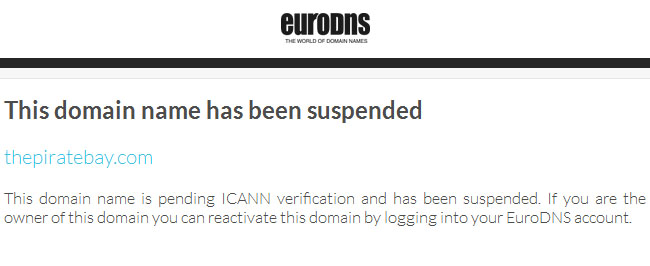
 Also affected today are domains related to Pirate Browser, the TOR-based anti-censorship tool released by The Pirate Bay
Also affected today are domains related to Pirate Browser, the TOR-based anti-censorship tool released by The Pirate Bay 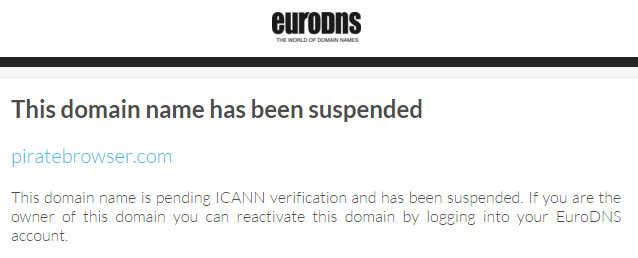
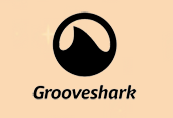 Last May, Grooveshark
Last May, Grooveshark 